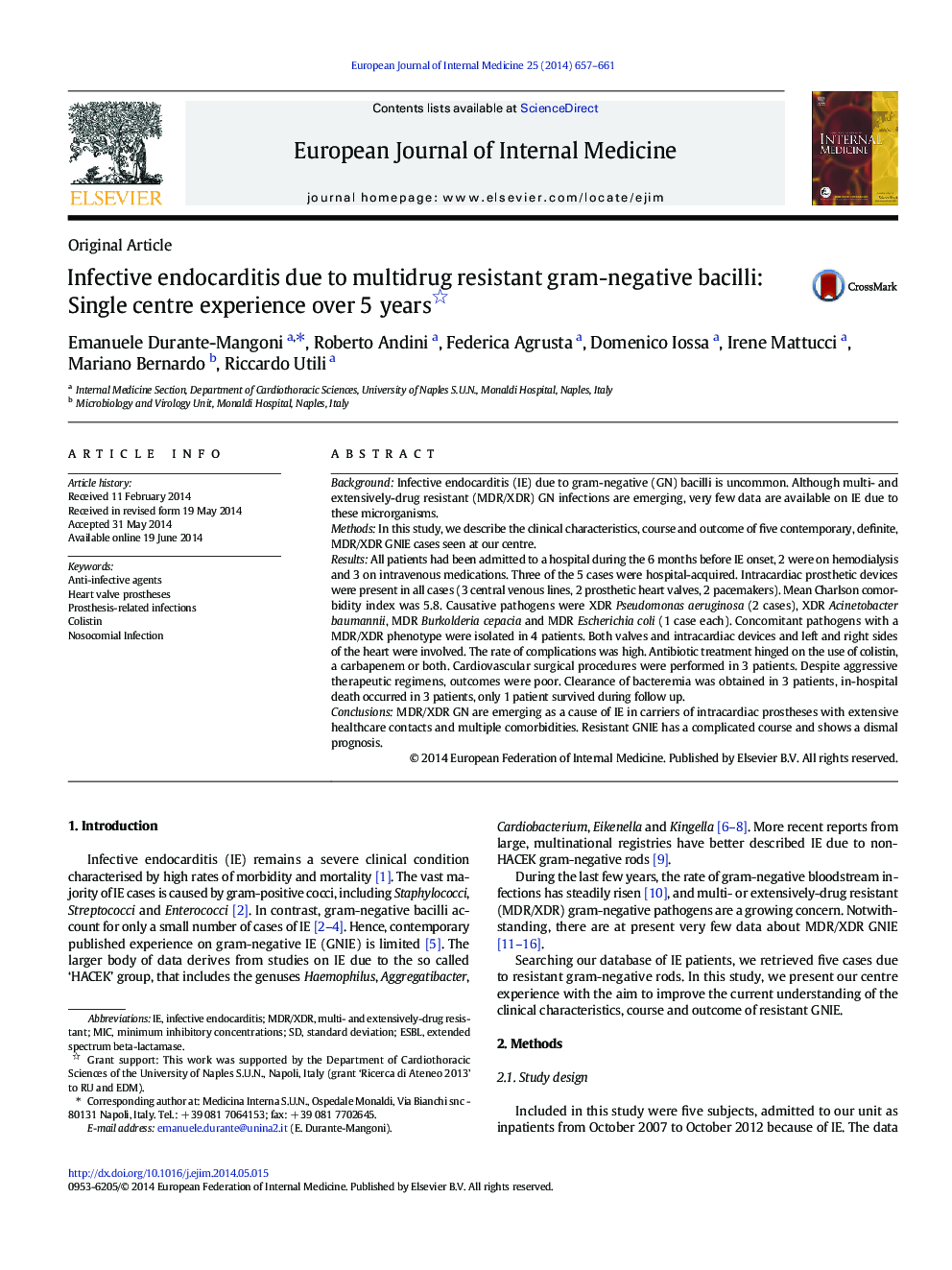| Article ID | Journal | Published Year | Pages | File Type |
|---|---|---|---|---|
| 6151661 | European Journal of Internal Medicine | 2014 | 5 Pages |
â¢Infective endocarditis is rarely due to multi-drug resistant gram-negative bacteria.â¢It is mostly hospital-acquired, involving intracardiac prosthetic devices.â¢Charlson comorbidity index and rate of complications are high.â¢Antibiotic treatment hinges on colistin, a carbapenem or both.â¢Outcome is poor, with a 60% in-hospital death rate and only 20% survival at 1 year.
BackgroundInfective endocarditis (IE) due to gram-negative (GN) bacilli is uncommon. Although multi- and extensively-drug resistant (MDR/XDR) GN infections are emerging, very few data are available on IE due to these microrganisms.MethodsIn this study, we describe the clinical characteristics, course and outcome of five contemporary, definite, MDR/XDR GNIE cases seen at our centre.ResultsAll patients had been admitted to a hospital during the 6Â months before IE onset, 2 were on hemodialysis and 3 on intravenous medications. Three of the 5 cases were hospital-acquired. Intracardiac prosthetic devices were present in all cases (3 central venous lines, 2 prosthetic heart valves, 2 pacemakers). Mean Charlson comorbidity index was 5.8. Causative pathogens were XDR Pseudomonas aeruginosa (2 cases), XDR Acinetobacter baumannii, MDR Burkolderia cepacia and MDR Escherichia coli (1 case each). Concomitant pathogens with a MDR/XDR phenotype were isolated in 4 patients. Both valves and intracardiac devices and left and right sides of the heart were involved. The rate of complications was high. Antibiotic treatment hinged on the use of colistin, a carbapenem or both. Cardiovascular surgical procedures were performed in 3 patients. Despite aggressive therapeutic regimens, outcomes were poor. Clearance of bacteremia was obtained in 3 patients, in-hospital death occurred in 3 patients, only 1 patient survived during follow up.ConclusionsMDR/XDR GN are emerging as a cause of IE in carriers of intracardiac prostheses with extensive healthcare contacts and multiple comorbidities. Resistant GNIE has a complicated course and shows a dismal prognosis.
